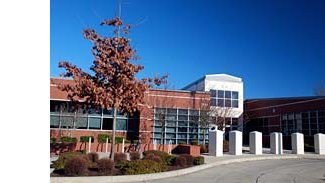WASHINGTON - As Tropical Storm Alex intensifies, the U.S. Department of Homeland Security's Federal Emergency Management Agency (FEMA) today urged citizens to closely monitor the storm and to take steps to be as prepared as possible, in advance of severe weather. Alex has become the first named storm of the 2010 Atlantic Hurricane Season.
"FEMA continues to monitor Tropical Storm Alex, and personnel are on the ground working closely with state and local as they prepare for landfall," said FEMA Administrator Craig Fugate. "The most important thing for people living in the area to do right now is to ensure their family is prepared and to follow the instructions of state and local officials. For more information and helpful tips, anyone can visit www.Ready.gov."
In anticipation of possible landfall in south Texas later this week, FEMA has pre-identified a Federal Coordinating Officer that would coordinate a federal response in the region if necessary, and he, along with members of one of FEMA's Incident Management Assistance Teams (IMAT) are on the ground working with the state. FEMA has also assigned a liaison officer for the Texas Department of Emergency Management, should they be requested.
In addition, FEMA has begun to transport commodities for staging. This includes more than 1.1 million meals, more than 405,000 liters of water, more than 41,000 tarps and more than 100 generators, as well as other commodities such as cots, blankets and personal kits.
FEMA remains in close contact with state and local officials in Texas and all hurricane prone states to ensure they have the resources they need should a storm strike. Alex should serve as another reminder that if you live in a coastal state, now is the time to be prepared, including determining if you live in an evacuation zone. As always, residents should listen to the instructions of state and local officials should a storm strike, and evacuate if told to do so. Visit www.Ready.gov for more information on how you can get your family ready for a hurricane or other emergency.
As hurricane season gets underway, FEMA continues to support the coordinated federal response to the BP oil spill. All of the planning for the 2010 hurricane season has involved consideration of the BP oil spill and its potential effects on all hurricane response and recovery scenarios. The existence of the spill does not change FEMA's initial priority during a response, which is to support the states and do everything possible to protect lives and property.
Here are some things everyone can do to prepare for the 2010 hurricane season:
*Develop Family Disaster Plans and Keep a Disaster Supply Kit. Just as every community should have a disaster plan, every family should have an emergency supply kit and plan what to do in case of a storm. Pay particular attention to relatives with special needs, small children and pets. Have a family communications plan.
*Make Your Home Disaster Resistant. You can reduce the damage caused by hurricanes by installing hurricane shutters on windows, putting straps and reinforced bracing on roofs, reinforcing garage doors, raising electrical appliances and outlets, installing sewage backflow valves and trimming back dead or weak tree branches from around a home.
*If the storm comes, you can be ready. When a storm is approaching, a battery-operated radio or television is one of the most important tools you can have during any weather emergency. A weather radio that broadcasts National Weather Service warnings and watches 24 hours a day can be particularly useful. The National Oceanic and Atmospheric Administration (NOAA) provides the weather radio network as a public service. Keep extra batteries handy for radios and flashlights.
For more information on hurricanes, and what you can do to protect yourself and your family, visit www.Ready.gov and www.fema.gov/hazard/hurricane.
Information can also be found on your smartphone at m.fema.gov.





